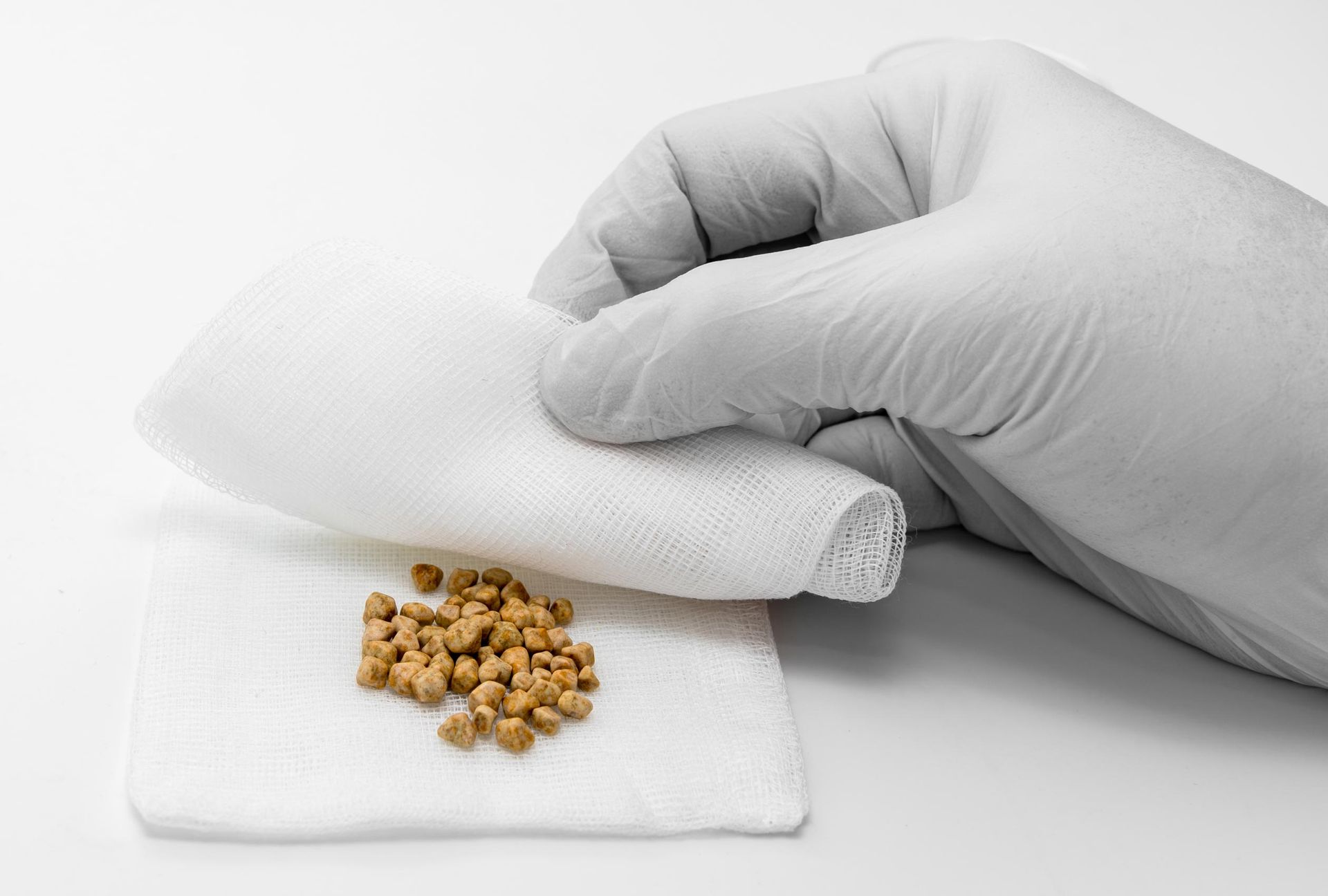Mount Elizabeth Novena Hospital #10-48/49
WHAT IS GALLSTONE REMOVAL SURGERY?
A well-functioning gallbladder is essential for overall quality of life. The gallbladder, a hollow organ in the upper abdomen, stores bile that is produced by the liver. It releases this bile in a controlled fashion into the small intestines to aid in digestion. However, it can sometimes harbour tiny but potentially troublesome contents — gallstones.
Gallstones can be highly uncomfortable and affect your overall well-being. How, then, should you treat this condition?
WHAT ARE GALLSTONES, AND HOW DO THEY FORM?
Gallstones are solid particles that form in the gallbladder. These solids can vary in size and composition, forming when substances in the bile—such as cholesterol, bile salts, and bilirubin—crystallise.
Risk factors for gallstone formation include:
- obesity
- a diet high in cholesterol and fat
- certain medical conditions
DO ALL GALLSTONES REQUIRE REMOVAL?
Not all gallstones warrant immediate removal. In fact, you may have gallstones without experiencing any symptoms. Asymptomatic gallstones or those causing mild, infrequent symptoms may be monitored without intervention.
Gallstone removal is based on several factors, ultimately depending on your circumstances and the severity of the condition. Here are some key deciding factors that may make gallstone removal necessary together with the gallbladder.
-
Symptoms
: Gallstone removal together with the gallbladder may be considered if you have recurrent or severe abdominal pain, nausea, vomiting, or even jaundice. -
Complications
: Complications such as gallbladder inflammation (cholecystitis), blockage of the bile ducts leading to infection (cholangitis), or the development of inflammation of the pancreas (pancreatitis) caused by gallstones may require gallstone removal together with the gallbladder. -
Size and number of gallstones
: The size and number of gallstones may but not often influence the decision to remove them. Certain sized stones may be more likely to cause blockages, while more stones may increase the risk of complications. -
Recurrent episodes
: Experiencing recurrent gallstone-related symptoms may call for gallstone removal together with the gallbladder. Frequent bouts of pain or other complications may indicate an ongoing issue that requires intervention. -
Gallbladder function
: If gallstones affect the function of the gallbladder, as determined through imaging studies or functional tests, removal may be recommended. -
Medical history and overall health
: Your medical history and overall health are key deciding factors. Certain pre-existing conditions, such as diabetes, can increase the risk of gallstone-related complications.
WHAT ARE THE SYMPTOMS OF GALLSTONES?
Gallstones can manifest with several symptoms with varying severity. Common symptoms include:
-
Pain
: Typically occurring in the upper right or mid abdomen, the pain can be intense, radiating to the back or shoulder blade region. -
Nausea and vomiting
: Gallstones can cause digestive distress, leading to nausea and vomiting. -
Jaundice
: If a gallstone obstructs the bile duct, it can yellow the skin and eyes, known as jaundice. -
Fever and chills
: Individuals may experience fever and chills in cases of inflammation.
WHAT ARE THE DIFFERENT METHODS FOR GALLSTONE REMOVAL?
The main treatment option recommended is gallbladder removal surgery. Also called laparoscopic cholecystectomy, it is a surgical procedure for removing the gallbladder. Once gallstones cause symptoms or complications, the gallbladder is often considered the source of the problem and removing it eliminates the recurrence of gallstones and related issues.
HOW IS LAPAROSCOPIC GALLBLADDER REMOVAL PERFORMED?
Here's a step-by-step description of how gallbladder removal surgery is performed on a patient:
Insertion of trocars
Small incisions, usually 0.5 to 1.0 centimetres, are made in the abdominal wall. Trocars are then inserted through these incisions. Trocars serve as entry points for the laparoscopic instruments and the camera.
Visualisation and instrumentation
A laparoscope, a thin tube with a light and a camera on the end, is inserted through one of the trocars. This camera enables the surgeon to visualise the insides of the abdomen on a monitor.
Gallbladder dissection and removal
- Identification of gallbladder: The surgeon identifies the gallbladder and surrounding structures using the laparoscope. The cystic duct and cystic artery, which supply the gallbladder, are located.
- Clipping and cutting: The surgeon uses specialised instruments to carefully clip and cut the cystic duct and cystic artery, disconnecting the gallbladder from the liver and its blood supply.
- Isolation and extraction: The gallbladder is carefully isolated and then extracted from the abdomen through one of the small incisions. In some cases, the surgeon may use a bag to contain the gallbladder before removal.
This
minimally invasive surgery is favoured for its quicker recovery time and reduced postoperative discomfort compared to traditional open surgery.
WHAT ARE THE POTENTIAL RISKS AND COMPLICATIONS OF GALLSTONE REMOVAL SURGERY?
While gallbladder removal surgery is generally safe, it does carry some risks and potential complications. These may include infection, bleeding, injury to surrounding organs, and, in rare cases, a condition known as bile duct injury.
If you are considering surgery, you should discuss these risks with your surgeon. A good surgeon will be able to take your medical history into account and reduce the risk of complications.
HOW LONG IS THE RECOVERY TIME AFTER GALLBLADDER REMOVAL?
The recovery period after gallbladder removal surgery varies from person to person. Most patients can return to normal activities within a week, although strenuous activities should be avoided for a few weeks.
We recommend you adhere to postoperative instructions, including a prescribed diet and activity restrictions, for a smooth recovery.
CALL YOUR GENERAL SURGEON FOR GALLSTONES IMMEDIATELY IF:
You experience symptoms such as:
- severe abdominal pain
- persistent nausea
- vomiting
- jaundice
These symptoms may indicate gallstone complications that require immediate evaluation by a general surgeon.
Additionally, if you were diagnosed with gallstones and are experiencing a sudden worsening of symptoms, you should contact your general surgeon immediately.
GALLBLADDER WITH GALLSTONE REMOVAL SURGERY IN SINGAPORE
Gallstones, though common, can lead to discomfort and complications, making timely intervention imperative. A proactive approach to monitoring symptoms and consulting with healthcare professionals ensures the optimal health of your bladder.
Colorectal Clinic Associates specialises in gastrointestinal health and gallstone removal surgery in Singapore. Our team of experienced surgeons brings expertise to the field, ensuring a nuanced understanding of gallstone-related concerns to guide you toward treatment and recovery.
Schedule a consultation to learn more about gallstone removal.




